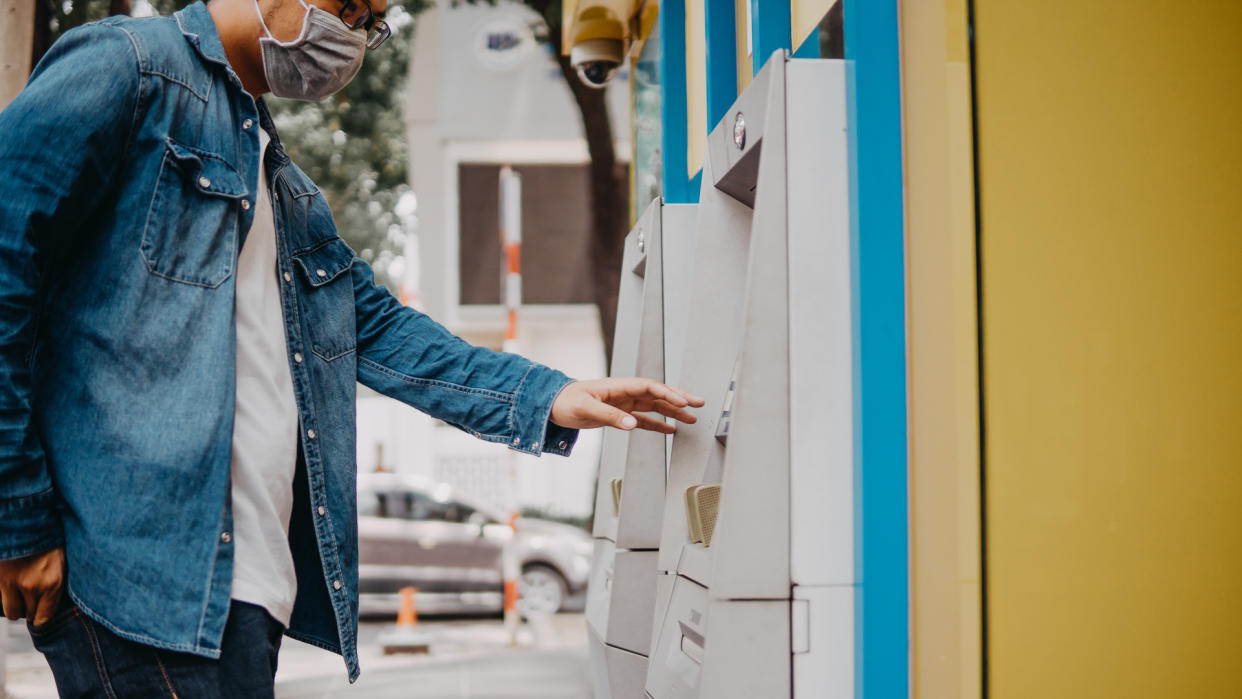How To Avoid Common Bank Fees and Charges

Getting hit with an unexpected banking fee can be frustrating. If you’re not careful, these fees can add up quickly. And in the case of overdrafts, the charges can compound. Fees are more common than you might think. They can be imposed for non-sufficient funds, overdrafts, maintenance, statements, transfers and more.
Amid the COVID-19 pandemic, consumers are struggling to make ends meet. When most Americans waste $100 a year on bank fees, there’s no better time to try and avoid them.
Here are eight ways to avoid bank fees and charges.
Set Up Direct Deposit
If your company offers direct deposit for your paycheck, it may pay to take advantage. It’s both intelligent and convenient. Your money is immediately available in your bank account on payday, and you don’t have to wait in line at the bank to deposit your check.
In addition, many banks waive monthly fees if you set up direct deposit with them. There are many other benefits of direct deposit and automatic payments you may want to learn more about.
Maintain the Required Minimum Balance
Nowadays, it’s common for banks to charge you a monthly fee to maintain your checking account. For example, Bank of America charges up to $12 per month for its Advantage Plus Banking account. However, you can avoid this fee entirely if you maintain a minimum daily balance of $1,500 or more.
Use Your Bank’s ATMs
The largest banks own and operate thousands of ATMs across the country. If you bank at one of them, odds are you can easily find a nearby ATM when you need cash. However, most banks will charge you an extra fee if you use an ATM operated by a different bank. You’ll also typically pay a fee if you use an ATM kiosk at a gas station. For example, Chase charges up to $5 per withdrawal from a Chase Total Checking account at a non-Chase ATM.
If you frequently take cash out, these fees can add up. You can avoid this by always using your own bank’s ATMs or using a bank that reimburses ATM fees.
Watch Your Spending Habits
One of the most common bank charges is the non-sufficient funds fee. Banks usually will charge you a fee when you use your account and don’t have enough money to cover a charge. Such fees can happen unexpectedly with recurring payments and subscriptions.
For example, Wells Fargo charges $35 for each payment in an overdrawn status. These charges can add up quickly if multiple overdrawn payments occur in a short period. By keeping an eye on your account balance, you can avoid overdraft charges.
Sign Up for Overdraft Protection
Even if you watch your balance closely, overdrafts can still happen. However, many banks offer an overdraft protection service to save you from those fees. To take advantage of the service, you link up another account — often a savings account — to your checking account. The bank will automatically transfer enough to cover any overages. Banks like Ally Bank offer this transfer service at no additional cost.
Enroll in Paperless Statements
Paper is expensive and bad for the environment. Electronic statements can be much more convenient than paper copies. In fact, many banks charge extra if you want paper statements.
For example, Bank of America charges $5 each for statement copies. You can avoid this type of charge by signing up for electronic delivery and viewing your statements online. If you need hard copies, you can download and print them yourself.
Avoid Unnecessary Wire Transfers
Wire transfers can be quick and convenient compared to traditional bank transfers, which take up to three business days to complete. However, there’s a cost for the speed and convenience.
For example, Chase charges up to $35 per domestic wire transfer and even more if you want to send a wire internationally. Sometimes, wire transfers are required. But if you can use a regular transfer, you can save money. You might want to explore some of the services that now offer no-cost personal transfers, like Zelle or Venmo.
Set Up Alerts and Notifications
One of the best ways to avoid unnecessary charges is to know what’s happening with your account. Most banks offer alerts and notifications for various activities on your account. Sign up for them and keep those extra fees away.
Some banks offer no-fee accounts to help you keep more of your money. Often, these accounts don’t charge fees for bill pay, ATM usage or other services.
Information is accurate as of Jan. 14, 2022.
This article originally appeared on GOBankingRates.com: How To Avoid Common Bank Fees and Charges

 Yahoo Movies
Yahoo Movies 
